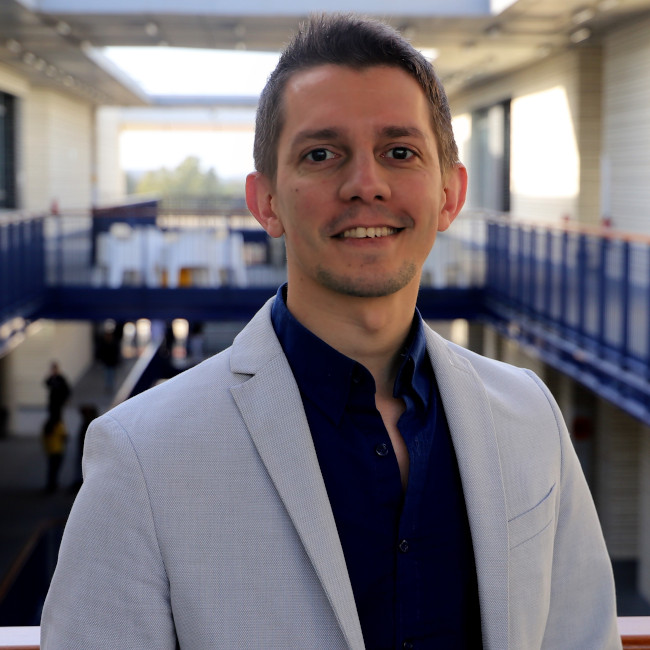Speaker

SERGIO FERNÁNDEZ-ARTAMENDI
ARGUS. SPAIN
Assistant Professor in the Department of Personality, Assessment, and Psychological Treatment at the University of Seville since 2023, and licensed clinical psychologist. He obtained his International Doctorate in Psychology from the University of Oviedo, with an Extraordinary Doctorate Award for his Thesis, in the Addictive Behaviors Research Group of this University, on the assessment and early detection of problems due to cannabis use in young people. He has conducted stays at the University of Arkansas for Medical Sciences (UAMS) and at the Lighthouse Institute of Chestnut Health Systems in Illinois, USA, to train in psychological assessment and treatment in adolescents with addictive behaviors. His doctoral thesis was recognized with the Extraordinary Doctorate Award in 2013, as well as with the Early Career Award from the College on Problems of Drug Dependence (CPDD) in the United States.
His research focuses on addictions in adolescents and young people, and their relationship with mental health and well-being, focusing on understanding gender differences, studying new addictive patterns, developing psychological assessment tools, adapting evidence-based intervention programs, or studying the predictive role of factors such as impulsivity and victimization in the development of addictions. All this through participation in national projects in these areas. This research career has resulted in more than 40 research articles, as well as various chapters in the field of addictions and child and adolescent mental health, and the editing of a manual on theory, assessment, and treatment of addictions.
He is the Editor-in-Chief of the journal “Adicciones”, Associate Editor of “Clínica y Salud”, and since 2016, an elected member of the Board of Directors of the Scientific Society for the Study of Alcohol, Drugs, and other Addictions (SOCIDROGRALCOHOL).
Game, internet, and social media in youth: clinical practice and prevention.

In recent years, the regulation of gaming, as well as its integration with new technologies, has led to an increase in its practice among youth. These new technologies have also led to the proliferation of new communication opportunities for young people, such as those derived from the internet and various social networks. However, the proliferation of gaming and the widespread use of the internet and social media also bring new challenges and risks for young people.
It is estimated that 4% of youth aged 14 to 18 exhibit problematic gaming patterns. While gambling disorders account for 80.7% of admissions to treatment for behavioral addictions in the general population, 10.2% seek treatment for abusive use of the internet, mobile phones, social networks, or video games, among others. Both gambling and the abusive use of the internet and social media pose various risks to the functioning and mental health of young people. In particular, various groups such as youth with disabilities are particularly vulnerable to these risks.
In this context, the symposium will first address the situation of problematic internet use and its link to suicidal risk, particularly in vulnerable populations with disabilities, with the aim of deepening prevention and early detection strategies. Additionally, the importance of attitudes towards gambling will be analyzed, and the potential utility of modifying them for the prevention of gaming problems in minors and youth will be discussed. Furthermore, the overvaluation of social networks as a possible predictor of well-being and psychological distress in youth will be examined, analyzing its psychological impact and discussing implications for prevention and psychological intervention. Finally, possible strategies for scientific dissemination on the risks of behavioral addictions and the use and abuse of new technologies to new generations will be discussed, using new platforms for communication.







